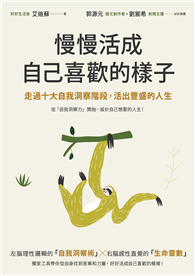Last Days of Pompeii presents an hourly-paid lecturer trying to write fiction. His fictions process his past via nightmares of previous lives in northern small towns, where the endless cycles of rebirth and changeless vistas are one kind of hell, not an idyll to be romanticised. His fictions then begin to sweat the augurs of a rapidly oncoming brutal future, the new hell, via an attempt to write the sci-fi he loves. The present and future begin to blur, his mental health starts to crumble. But his fiction fails - it fails in quality - his work frequently fails, his colleagues fail, the students fail, the university fails, the city fails, our culture fails. The world fails. In an era when to be ’professional’ is to fake it until you make it, then carry on faking it after you’ve made it - as the solipsistic populations of the west and beyond stroll towards the precipice - Last Days of Pompeii declares the new revanchist frontier for literature in our time to be the Literature of Failure. But this can be no grand announcement. This new literature must not be the prurient, sentimental peddling of individual struggle already on the market, but an unflinching, excoriating smash of personal with historical failure. Our hugely excessive language of positivity is a thin veneer, it reflects our narcissism back at us, but masks the inevitable era of collapse to come. The biggest tragedy of all is that tragedy gains no traction in these risible last days. Perhaps it never does, at the end of any civilisation. Maybe tragedy is always retrospectively sketched in. Last Days of Pompeii exemplifies this inversion: first as farce and only then, falsely, as tragedy.
| FindBook |
有 1 項符合
Last Days of Pompeii: vols 1 & 2的圖書 |
 |
Last Days of Pompeii: vols 1 & 2 作者:Hanson 出版社:Erratum Press 出版日期:2024-10-10 語言:英文 規格:平裝 / 300頁 / 19 x 11.99 x 1.7 cm / 普通級/ 初版 |
| 圖書館借閱 |
| 國家圖書館 | 全國圖書書目資訊網 | 國立公共資訊圖書館 | 電子書服務平台 | MetaCat 跨館整合查詢 |
| 臺北市立圖書館 | 新北市立圖書館 | 基隆市公共圖書館 | 桃園市立圖書館 | 新竹縣公共圖書館 |
| 苗栗縣立圖書館 | 臺中市立圖書館 | 彰化縣公共圖書館 | 南投縣文化局 | 雲林縣公共圖書館 |
| 嘉義縣圖書館 | 臺南市立圖書館 | 高雄市立圖書館 | 屏東縣公共圖書館 | 宜蘭縣公共圖書館 |
| 花蓮縣文化局 | 臺東縣文化處 |
|
|
圖書介紹 - 資料來源:博客來 評分:
圖書名稱:Last Days of Pompeii: vols 1 & 2
|









